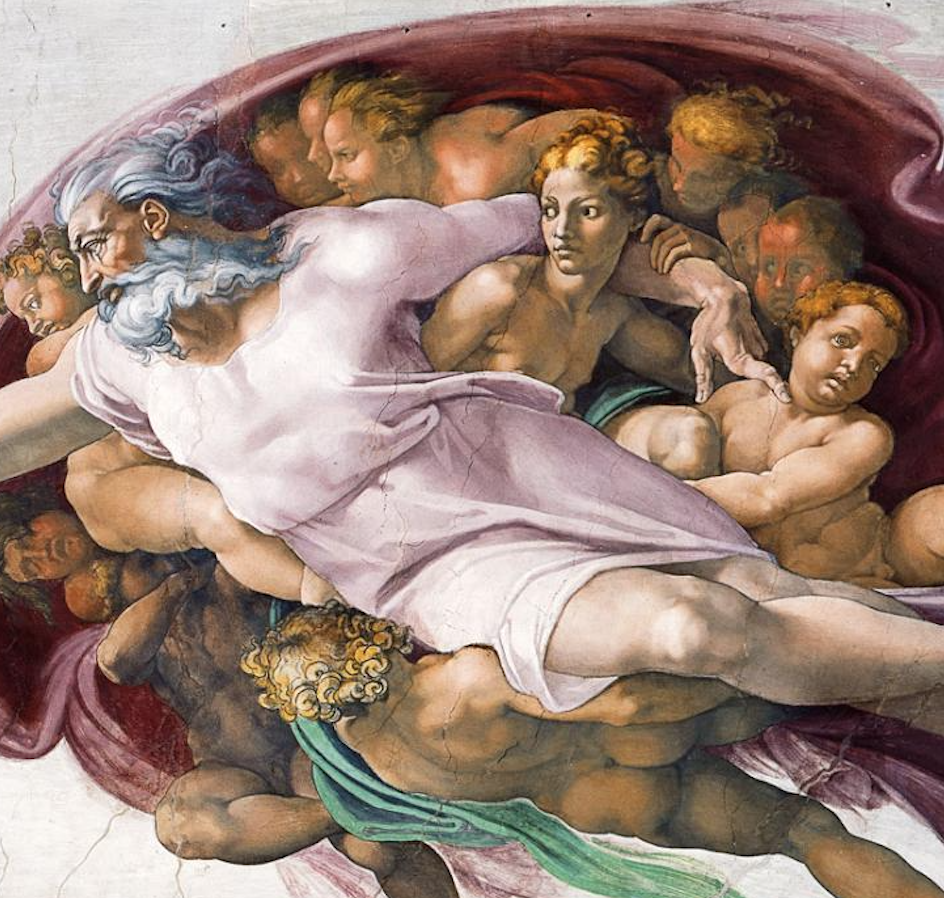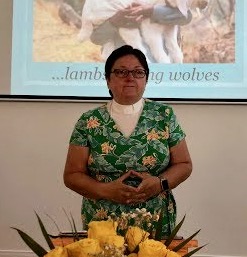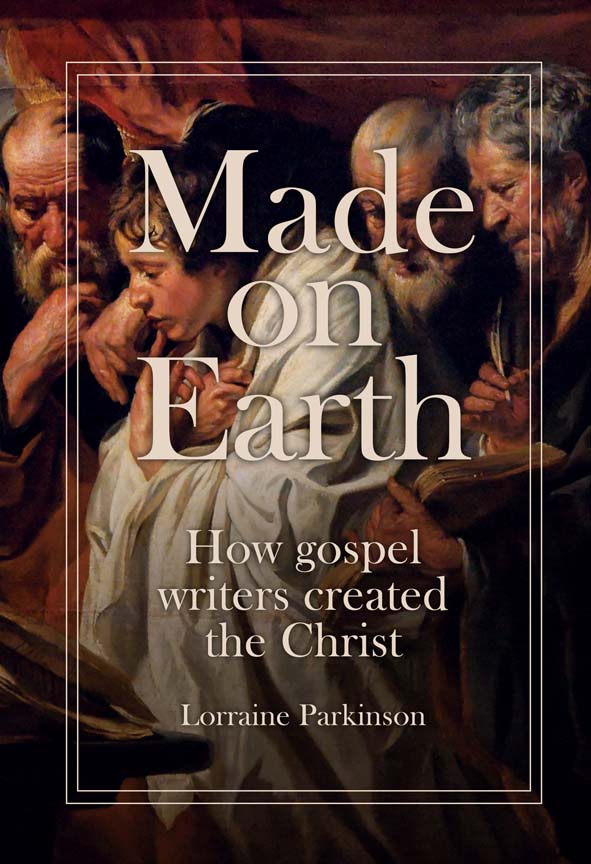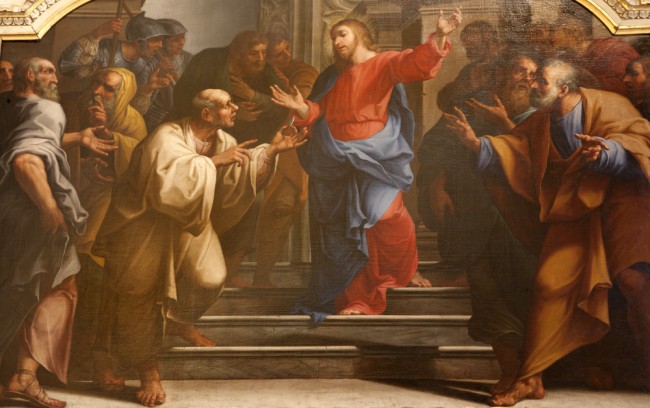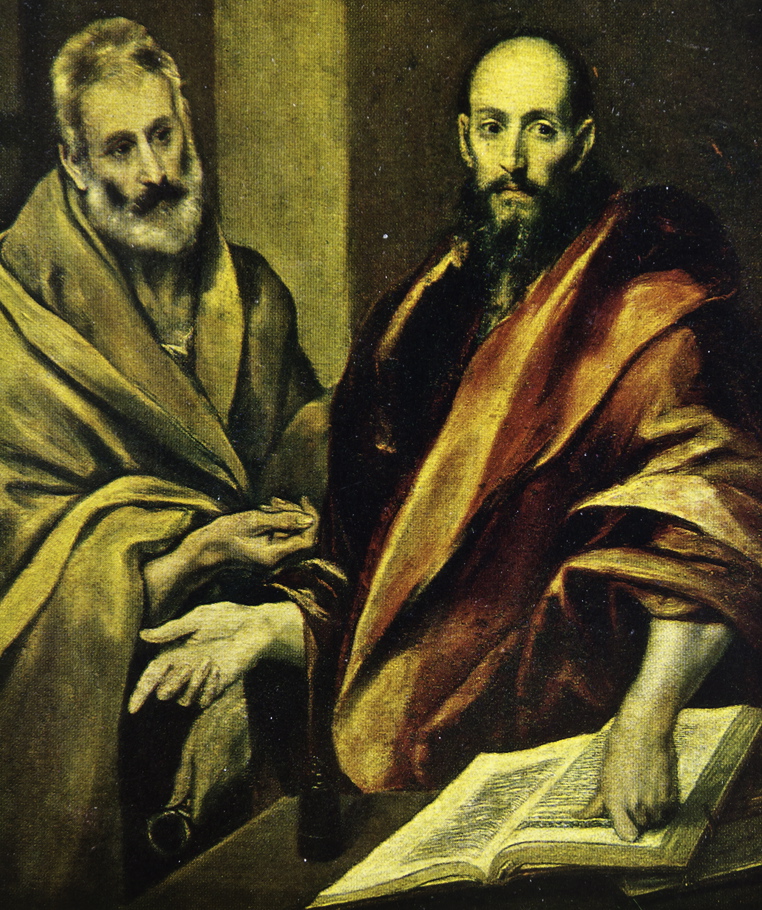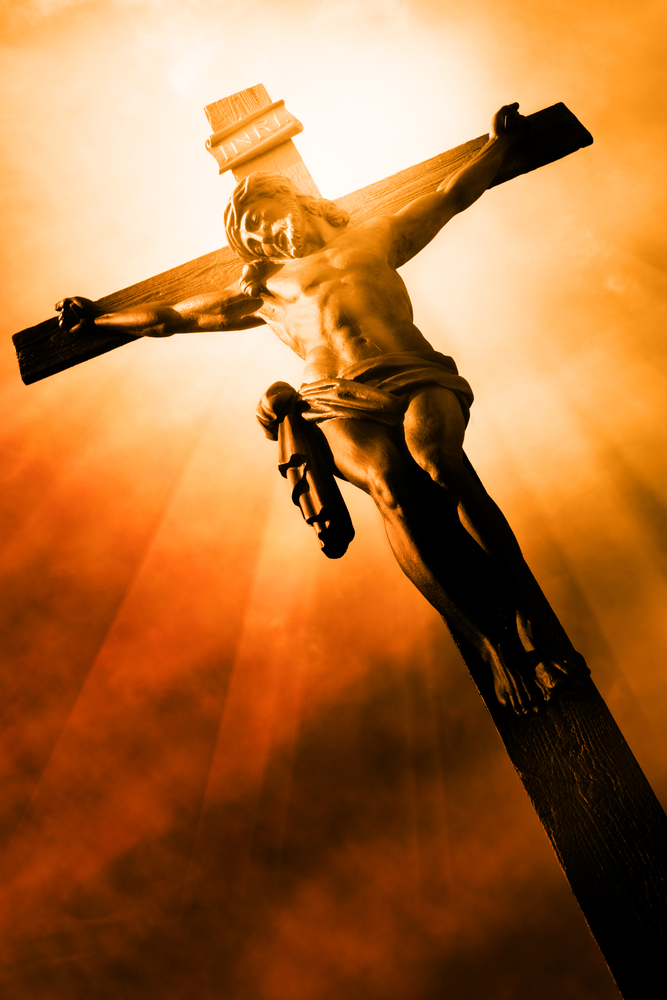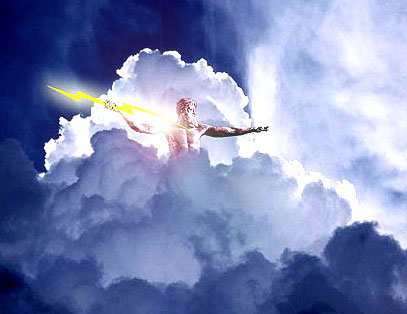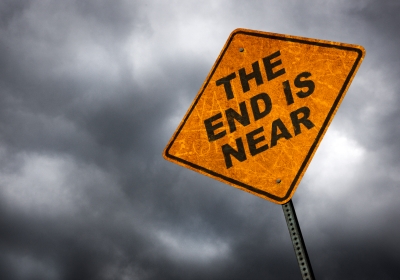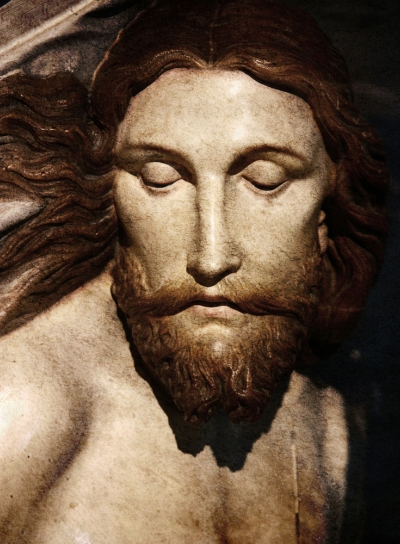The central focus of Jesus’ message was to announce the imminent coming of the kingdom of God. This is what he was sent to do. (Luke 4: 43-44) This kingdom would be on earth for the people of Israel. (Matthew 10: 5-8) Although Jesus gives few details on how this kingdom would operate.
What has always “tainted” mankind and kept people from living ethical, inclusive, and caring lives? The answer is what drives our contemporary enormous cultural divide: Bad choices often rooted in tribal-based anger and hatred.
Some people are highly devotional because it is scary having one's paradigm shattered. This is to be exposed to the chaos of one’s own mind (the devil!). It is much easier to cling to the established artifacts of one’s own thinking then to fall into the pit of chaos. Most people would rather die than admit that the belief system/paradigm that they have carried most or all their life is wrong in spite of proof of error time and time again.
The framework of ancient virtue theory, with its emphasis on character and the life of each human being as a whole, also formed a backdrop for the Synoptic Gospels. It is against this background that the figure of Jesus can be analyzed as an exemplar of the ideal moral person.
“Jesus heals not only us as individuals but a savior has been born, one who will heal the world from all its ills.”
What we know about the gospel-storyteller that we call Luke is that he wrote close to the end of the first century. Some 50 to 60 years after the life of Jesus of Nazareth; a time when the full force of the mighty Roman Empire was being brought to bear upon the Jewish people and upon the followers of Jesus’ Way of being in the world.
To this day, when I’m weary from battles with my own demons if I’m able to simply stop, to stop just for a few moments and listen, sometimes the still small voice speaks to me.
NEW TITLE RELEASE 21st January 2016
In this book Lorraine Parkinson sets out compelling reasons why the gospels may be found to have been ‘made on earth’. She builds a strong argument that each gospel was written to make a distinct case for Jesus as the Christ. She presents detailed evidence that the Christ of the gospels is the creation of Mark, Matthew, Luke and John, plus later editors. The sub-text of this book contends that by including teachings of Jesus alongside claims for him as Christ, gospel writers bequeathed to Christianity two contradictory gospels – the gospel of Jesus and the gospel about Jesus.
The idea of a second coming of Christ is a mystery, if not explicitly controversial. Jesus’ followers apparently believed he would return during their lifetime after he was crucified. When that didn’t happen, later followers gradually changed the belief into an indefinite “someday.” After two thousand years of waiting, most Christians no longer look for it to happen in their lifetimes and acknowledge that Jesus may have been speaking metaphorically about his return. It is just as likely that those words were put into Jesus’ mouth by the gospel writers themselves. Wishful thinking?
A Commentary for the Annual Observance of Independence Day, 2013
“We hold these truths to be self-evident, that all men are created equal, that they are endowed by their Creator with certain unalienable Rights, that among these are Life, Liberty, and the pursuit of Happiness." These grand words are etched in the American consciousness, and serve as a preamble of sorts to the Constitution’s subsequent ideal goal of “a more perfect union.” With the recent split Supreme Court decisions over voting rights and marriage equality, along with and passage of an immigration reform bill in the Senate that naysayers declare is DOA in the House of Representatives, it would appear that while progress has been made, we clearly remain a work in progress, as well. As we prepare to celebrate our Independence Day holiday this year the fireworks have been set off a little early with the debate over the intelligence surveillance practices of the so-called Patriot Act by a government that was established of, by and for the people. Call them heroes or traitors, whistleblowers or hack-tivists, there are also a growing number of anti-authoritarian tech geeks who claim to be motivated less by notoriety than a certain principled conscience to which they claim to have pledged a higher allegiance. So, what is the nature of “natural” or “divinely-bestowed” rights? What of human conscience, earthly authority, and more? And – for those of us who might consider ourselves both a red-blooded American and Christian of one sort or other -- what might constitute a “Christian” conscience, based on a Jesus life-ethic? You can find the latest commentary Here.
Paul endorsed the Roman status quo, politically. He made the real issue identification with a descended (divine) savior, spiritually raised and soon to return. The Jerusalem group shared the last point but emphatically not the first two of Jesus' divinity nor acquiescence to Roman rule. Their expected Messiah (dramatically shifted after his death to a returning one) would establish peace with Jewish centrality and abolish the MILITARY dominance of other kingdoms but not the existence of other nations.
But the loss of their key center and probably the main leadership and overall strength of the movement opened the way for Pauline Christian influence which is clear particularly in Luke (both his Gospel and Acts).
The great dividing line for two religions and the relationship between them is the period of 66-70 CE, which ended in the destruction of both Jerusalem and the great "Second Temple". For Jews of the time this destroyed the political, economic and religious organization of Israel....
Now there are at least two major types of people who do take seriously what is said in the New Testament (NT), which I'm summarizing here as "the Gospel." Here are the two types, for our purposes in this very brief summary of NT understanding as it relates to who wrote the books...
So in a round-about way, Gamaliel, as quoted by Luke, is giving us a powerful clue about what kind of literature the Gospels are — a unique mix of a few core historical events with lots of theological overlay, all blended with a good dose of the kinds of stories of miraculous signs that we know were common and sometimes persuasive in that day. And not surprisingly…. They still are today!
Jesus’ parables tell us how use our creativity to subvert the putative rulers of Earth. Jesus got into trouble for suggesting that the way to assure that all of the people have food to eat is to share whatever they have. And don’t assume that your traditional enemy has no soul. The very powers that are supposed to have your best interest at heart will pass you by on the other side of the road while you die in the ditch (“The Good Samaritan” Luke 10:30-35). To love your enemies is to have no enemies.
I've titled this as about the Resurrection, which is just one part of a complex of beliefs... but let's return and end there... What similarities or differences do you see in Paul's Resurrection statements and beliefs and those of the early Jerusalem Jesus-followers?
Basically, the Church was developing within a strongly partiarchal and heirarchical society.... Despite the freshness and hopefulness we see in Jesus and Paul, it is not surprising that male domination would soon assert itself and claim exclusive leadership privileges. Maybe women could lead among women, of course... no real complication or threat there.
2) The Hebrew scriptures, or the Old Testament, represent a religious tradition that is independent of the later Christian faith. The Hebrew scriptures aren't about Jesus, although the Christian scriptures include many references to the Hebrew scriptures. To honor the fundamental differences between the two sets of scriptures doubles the spiritual significance of the entire Bible.
With chapter 7 the anti-Semitism that has haunted Christianity for centuries seems to become unavoidable.
A look at how Christians today still want the kind of physical power Messiah that the Jews hoped for and who will change the world for us, when the actual need is for a spiritual change within ourselves and for us to respond to a vision and a challenge.
* How did monotheistic Jews of the early church come to see Jesus as a part of the unique identity of Israel's God? Offering an alternative to "functional" and "ontic" Christology, Bauckham convincingly argues that the divine identity---who God truly is---can be witnessed in Jesus' humiliation, suffering, death, and resurrection.
If we are honest, this parable of the wedding guests is perplexing and almost beyond understanding. It weaves here and there, turning expectations upside down and just when you think "I've got it!" - no you haven't because it twists again.
Part II
What is the relationship between the Jesus of history and the title accorded him as the “Christ?” No matter what kind of Christian you may be, if Jesus is regarded to be fullest manifestation of God in the faith tradition we all call Christianity, just which Jesus are we talking about? And, how might we get from possibly being a disciple of this Jewish rabbi and spirit-sage, to “taking up a cross” of some kind for this “Christ?” In a word, who's got which Jesus? This is Part II of a two-part commentary.
What is seldom noticed by traditional Christians is that consignment to hell is not the payback for “sin”; it is the consequence of not believing that Jesus was the one Anointed by God to return the world to God’s covenantal rule. If you don’t believe Jesus was the one – according to Matthew – you won’t follow Jesus’ teachings, and when the transformation comes, you will be found in the company of the goats.
The process the early followers of Jesus went through that resulted in the Church of Jesus Christ is fairly long, fairly obscure, and full of pitfalls for those who seek to recreate it.
Part I
Shortly before his deadly rampage in Norway in July, Anders Behring Breivik posted a rambling Christian jihadist manifesto on his Facebook page. Within days, a self-professed Christian fundamentalist who blogs online claimed the mass murderer was no Christian because he “supports Darwinism and human logic, demonstrating a rationalist worldview rather than a Christian one.” Uh-oh. While I would also identify myself as some kind of “Christian,” I couldn’t resemble either of these two characters less. So what kinds of beliefs and behaviors do I accept and refute to describe my own “Christian” identity? What kind of a “Christian” am I? …
The events in the life of Jesus of Nazareth did not happen in a vacuum, nor are these events history as history is now defined.
Faith is not about getting our doctrines right. Nobody gets the doctrines right. It’s about doing the right things.
The events and characters that are described in Revelation are infused with a certain fundamental archetypal significance that can be applied to a wide array of individuals and situations—including ones in the present-day.



